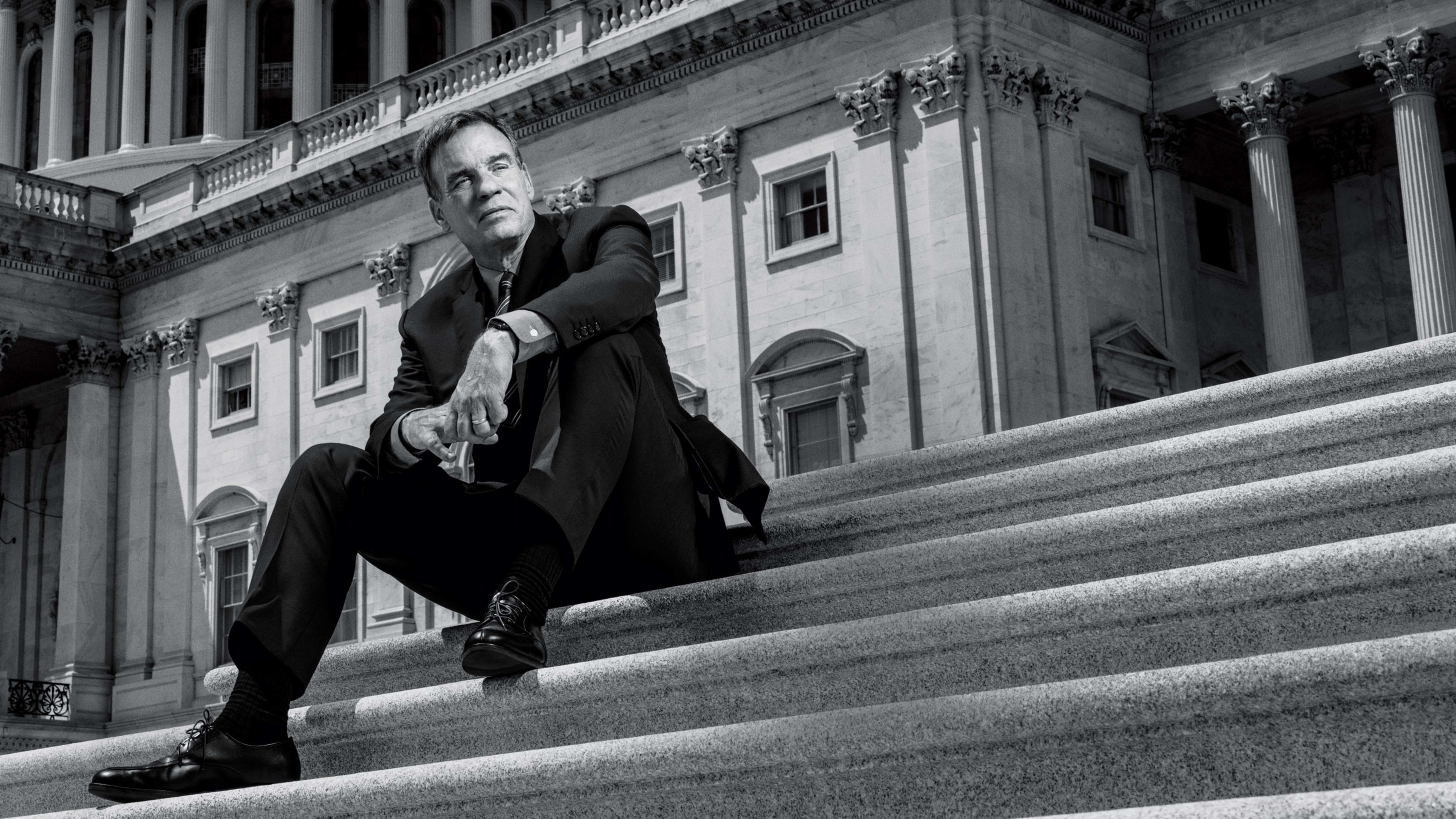A dozen venture capital investors in dark suits enter the U.S. Capitol Visitor Center on an overcast November afternoon, pass through security, and make their way to the basement, where a police officer guards the entrance to the Senate’s Sensitive Compartmented Information Facility. Through the double doors, the VCs place their phones and Apple Watches in wooden cubbies; their host for the afternoon, Senator Mark Warner, has a clearly labeled cubby of his own, as do all 99 of his Senate colleagues.
Warner, a Virginia Democrat who serves as vice chairman of the Select Committee on Intelligence, has invited the group to Capitol Hill for a classified briefing on China. They follow National Venture Capital Association president and CEO Bobby Franklin into the SCIF’s soundproof, spyproof underground auditorium and take their seats at a large round table alongside top officials from the FBI, the Department of Homeland Security, and the National Counterintelligence and Security Center, as well as Florida Senator Marco Rubio, a Republican member of the Select Committee. The VCs sign nondisclosure agreements and are “read in” on the rules governing the sensitive information they are about to receive before Warner and Rubio spend half an hour framing the conversation that will follow.
Warner will go on to organize 10 more briefings like this for civilian leaders in business and academia over the next seven months. The former entrepreneur and tech investor feels compelled to “sound the alarm” about China, he’ll tell me when we meet in his double-height corner office near the Capitol a few months later, an American flag shivering in the breeze outside the window. He is also trying to make up for lost time. “We were late,” he says, referring to 5G in particular—a technological shift involving faster wireless speeds that he likens to the leap from radio to television. China invested nearly $300 billion last year in research and development on technology like 5G, while supporting the rise of homegrown startups such as Huawei, a telecom giant that boasts more 5G patents than any other company in the world and 2018 revenues of $100 billion, making it roughly the same size as Microsoft. Warner believes that China is positioning itself, through companies like Huawei that operate internationally (Huawei does business in 170 countries), to export a model of internet governance that runs counter to U.S. priorities, not to mention existing U.S.-defined norms. At the most basic level, Huawei’s 5G hardware could serve as a back door for Chinese spies looking to listen in on foreign networks. In a more expansive way, China could use Huawei and its peers to export a tool kit for internet-enabled state surveillance. (A Huawei spokesperson dismissed such claims, describing the company as a “vendor” deeply integrated into complex global supply chains.)
“For all our flaws, don’t call our [democratic] system equivalent to what the Chinese are practicing,” Warner says.
Recognize your company's culture of innovation by applying to this year's Best Workplaces for Innovators Awards before the extended deadline, April 12.
